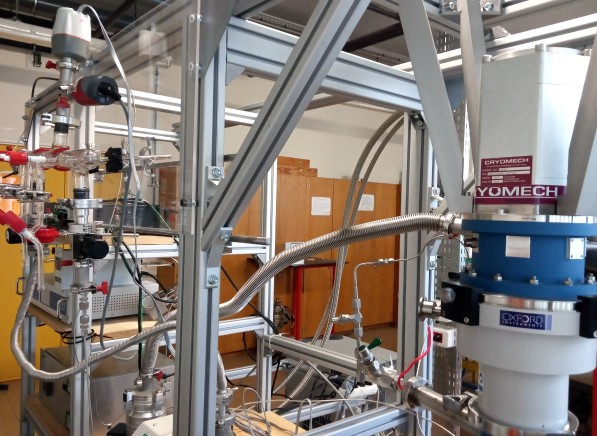PACMAN Tenure-Track Junior Professor ChairPhotoreactivity and complexes of mono and poly AromatiC Molecules in Atmospheric fundameNtal studies

Introduced by the French Research Programming Act (LPR) 2021-2030, Tenure-Track Junior Professor Chairs (CPJ) represent a new recruitment pathway leading to a tenured position as a university professor or research director. They are funded by the French National Research Agency (ANR) with 200,000 euros over an average period of 5 years.
The PACMAN project aims to gain a deeper understanding of the degradation processes of aromatic derivatives that are precursors of secondary organic aerosols (SOAs) and halogenated polycyclic aromatic hydrocarbons (PAHs) in the atmosphere (troposphere and stratosphere).
The aim is to characterize the involved precursors in the reactions that these molecules undergo in the atmosphere, the resulting products of these reactions, and the pathways or mechanisms of reactions with the intermediates involved.
The chair will explore the main photolysis pathways of various precursors of SOAs, and of some halogenated PAHs that have not been previously addressed, by isolating the molecules in cryogenic matrices (noble gases, nitrogen, water, para-hydrogen) and then study different types of photo-induced processes in these systems, as well as reactions with relevant small molecules in the atmosphere.
The originality of this project lies in the fact that it addresses the little-explored photochemistry of halogenated PAHs and certain precursor molecules of SOAs. The goal is not to reproduce the exact and complex conditions under which the processes studied take place in the atmosphere, but rather to provide a finer understanding of the physical and chemical processes involving these systems.
Alejandro Gutierrez Quintanilla obtained a Master’s degree in Physical Chemistry from the University of Havana (Cuba) and a PhD from Université Paris-Saclay at the end of 2016 for his thesis “Molecules and complexes with hydrogen bonding: solvation and photoreactivity in cryogenic matrices”.
He taught for two years at Cuba's Higher Institute of Technology and Applied Sciences, before completing a post-doctoral contract and a temporary teaching and research assignment at the University of Aix-Marseille.

